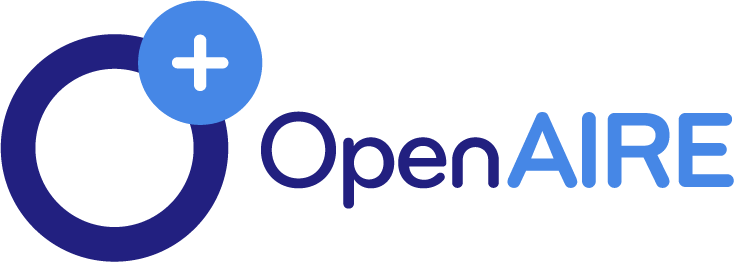ПРОБЛЕМИ ВПРОВАДЖЕННЯ ДИСТАНЦІЙНОЇ ФОРМИ ПІДВИЩЕННЯ КВАЛІФІКАЦІЇ ПЕДАГОГІЧНИХ ПРАЦІВНИКІВ
DOI:
https://doi.org/10.28925/2414-0325.2023.142Ключові слова:
підвищення кваліфікації; дистанційна форма; навчання дорослих; інформаційно-комунікаційна компетентність; платформа MoodleАнотація
Сучасна ситуація в країні визначально впливає на сферу освіти, що зумовлює більш істотне впровадження дистанційних форм навчання не лише для підготовки учнів, але й педагогічних працівників. Дистанційне навчання охарактеризоване як індивідуалізований процес набуття знань, умінь, навичок і способів пізнавальної діяльності людини, який відбувається в основному за опосередкованої взаємодії віддалених один від одного учасників освітнього процесу у спеціалізованому середовищі, яке функціонує на базі сучасних психолого-педагогічних та інформаційно-комунікаційних технологій. Показано, що у багатьох науково-методичних працях аналізуються позитивні аспекти дистанційної форми навчання (мобільність, постійний доступ до матеріалів, змішане та / або перевернуте навчання, можливість залучення великої кількості учасників, економічність, нова роль викладача, робота в синхронному та / або в асинхронному режимі тощо). Встановлено недостатню кількість статей, що присвячені проблемам впровадження дистанційної форми навчання, особливо дистанційної форми підвищення кваліфікації педагогічних працівників (низький рівень інформаційно-комунікаційної компетентності, відсутність мережі інтернет, застаріла техніка, слабка самоорганізація слухачів, відсутність «живої» комунікації, проблема персоналізації роботи, порушення авторського права тощо). Описано основні етапи історії розвитку дистанційної форми навчання від XVIII століття. Обґрунтовано ефективність впровадження дистанційної форми підвищення кваліфікації вчителів в післядипломній системі. Проаналізовано педагогічні, методичні та наукові праці, присвячені проблемам неперервної професійної освіти вчителів, підвищення кваліфікації педагогів та їхнього професійного розвитку. Досліджено та описано проблеми впровадження дистанційної форми підвищення кваліфікації педагогічних працівників в системі післядипломної педагогічної освіти.
Завантаження
Посилання
Holmberg B. The evolution, principles and practices of distance education. Open Learning, vol. 11, Oldenburg, Germany: BIS-Verlag der Carl von Ossietzky Universität Oldenburg, 2008.
Aksoy Y. Attitudes of Postgraduate Students Towards Distance Education During the COVID-19 Pandemic: North Cyprus Example, Front. Psychol, 2021. URL: https://doi.org/10.3389/fpsyg.2021.766183 (date of access: 05.04.2022).
Tait A. Reflections on Student Support in Open and Distance Learning, The International Review of Research in Open and Distance Learning, vol. 4, no. 1, 2003. P. 1-9.
Agosti G. Distance Education in the Era of Internet, in Encyclopedia of Developing Regional Communities with Information and Communication Technology, S. Marshall, W. Taylor, and X. Yu., Eds. London, GB: Idea Group Inc (IGI), 2005. P. 199-205.
Hmelo-Silver C. E. Analyzing collaborative learning: Multiple approaches to understanding processes and outcomes, in Proc. 7th Int. Conf. on Learning sciences, Indiana, USA, 2006. P. 1059-1065.
Greenhow C. and Lewin C. Social media and education: Reconceptualizing the boundaries of formal and informal learning, Learning, Media and Technology, vol. 41, 2016. P. 6-30.
Crompton H. A historical overview of mobile learning: Toward learner-centered education, in Handbook of mobile learning, Z. L. Berge and L. Y. Muilenburg, Eds. Florence, KY: Routledge, 2013. P. 3-14.
Hartshorne R., Baumgartner E., Kaplan-Rakowski R., Mouza C. and Ferdig R. Special Issue Editorial: Preservice and Inservice Professional Development During the COVID-19 Pandemic», Journal of Technology and Teacher Education, vol. 28, no. 2, 2020. P. 137-147.
Ferdig R., Baumgartner E., Hartshorne R., Kaplan-Rakowski R. and Mouza C. Teaching, Technology, and Teacher Education during the COVID-19 Pandemic: Stories from the Field, Association for the Advancement of Computing in Education (AACE), 2020.
Albers P. et al. Critical spaces for critical times: global conversations in literacy research as an open professional practice and development resource, Global Educ. Rev, vol. 2, 2015. P. 46-67.
Stevens D., Frazelle S., Bisht B. and Hamilton R., Online Credit Recovery: Enrollment and Passing Patterns in Montana Digital Academy Courses, Regional Educational Laboratory Northwest, Washington, DC, USA, REL Rep. REL 2016-139, vol. 27, June 2016.
Darling-Hammond L., Hyler M. and Gardner M. Effective Teacher Professional Development, Learning Policy Institute, Palo Alto, CA, USA, Rep., June 2017.
Brooks C. and Gibson S. Professional learning in a digital age. Canadian J. Learn. Technol, vol. 38, no. 2, 2012. P. 1-17.
Верховна Рада України. Закон № 2145-VIII, Про освіту. URL: https://zakon.rada.gov.ua/laws/show/2145-19#Text
Верховна Рада України. Постанова № 800 від 21.08.2019, Деякі питання підвищення кваліфікації педагогічних і науково-педагогічних працівників. URL: https://zakon.rada.gov.ua/laws/show/800-2019-%D0%BF#Text
Верховна Рада України. Наказ № 466 від 25.04.2013, Про затвердження Положення про дистанційне навчання. URL: https://zakon.rada.gov.ua/laws/show/z0703-13#Text
Крамаренко Т. Г. Проблеми підвищення кваліфікації вчителів математики з використання ІКТН, Науковий часопис НПУ ім. М. П. Драгоманова. Серія 2. Комп’ютерно-орієнтовані системи навчання, т. 13, № 20, C. 155-160, 2012. URL: https://sj.npu.edu.ua/index.php/kosn/article/view/336. Дата звернення: Квіт. 5, 2022.
Ротфорт Д. В., Гезей О. М. Підвищення кваліфікації вчителів початкових класів у сучасних умовах, на Всеукр. наук.-практ. конф. з міжн. уч. Навчання через гру в освітньому просторі України: досвід, виклики, ідеї та рішення», Запоріжжя, 2021. C. 83-91. URL: https://drive.google.com/file/d/19h_-lFNUiBkNe5dbavSYdGouG1j3AZ4v/view. (дата звернення: 05.04.2022).
Воротнікова І. П. Використання інструментів LMS MOODLE для забезпечення якісної післядипломної освіти вчителів, Відкрите освітнє е-середовище сучасного університету, № 3, C. 310-319. 2017. https://doi.org/10.28925/2414-0325.2017.3.31019
Захар О. Г. Особливості застосування технологій дистанційного навчання в системі підвищення кваліфікації вчителів інформатики, Вісник Національного університету «Львівська політехніка», № 831, 2015. C. 23-28. URL: https://science.lpnu.ua/sites/default/files/journal-paper/2019/jun/16829/08-23-27.pdf. (дата звернення: 05.04.2022).
Колос К. Р. Мета і завдання підвищення кваліфікації педагогічних кадрів у комп'ютерно орієнтованому навчальному середовищі закладу післядипломної педагогічної освіти. Комп’ютер у школі та сім’ї. № 6. 2015. С. 34-37. URL: https://lib.iitta.gov.ua/704318/1/%D0%A1%D1%82%D0%B0%D1%82%D1%82%D1%8F_%D0%9A%D0%BE%D0%BB%D0%BE%D1%81.pdf. (дата звернення: 05.04. 2022). Кухаренко В. М., Бондаренко В. В. Екстрене дистанційне навчання в Україні. Харків, Україна: Вид-во КП «Міська друкарня». 2020. 409 с.
Мукан Н. В. Сучасні дослідження в галузі підвищення кваліфікації вчителів у системі неперервної професійної освіти англомовного світу. Вісник Національного університету «Львівська політехніка», № 586, 2007. С. 29-36. URL: http://vlp.com.ua/files/10_36.pdf. (дата звернення: 05.04.2022).
Noskova M., Semianyk O., Miziuk V., Babakina O., Lytvyn V. Formação de competência digital dos professores nas condições de ensino a distância. Laplage Em Revista, vol. 7 (Extra-C), 2021. P. 548-558. URL: https://doi.org/10.24115/S2446-622020217Extra-C1043p.548-558. (дата звернення: 05.04.2022).
Покришень Д. А. Дистанційна форма навчання в післядипломній освіті. Інформаційні технології і засоби навчання, т. 32, № 6, 2012. URL: https://doi.org/10.33407/itlt.v32i6.721. (дата звернення: 05.04.2022).
Яковенко О. І. Дистанційна форма підвищення кваліфікації як ефективний засіб навчання та професійної реалізації педагогічних працівників ЗВО. Педагогіка формування творчої особистості у вищій і загальноосвітній школах, т. 3, №75, 2021. С. 165-170. URL: http://pedagogy-journal.kpu.zp.ua/archive/2021/75/part_3/34.pdf. (дата звернення: 05.04.2022).
Опубліковано
Як цитувати
Номер
Розділ
Ліцензія
Авторське право (c) 2023 Давидовський М.В., Сокол І.М, Стадниченко К.В.

Ця робота ліцензується відповідно до Creative Commons Attribution-NonCommercial-ShareAlike 4.0 International License.











1.jpg)









